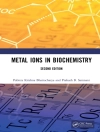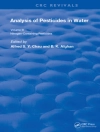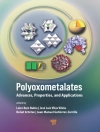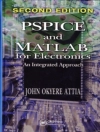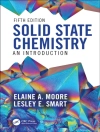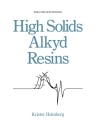Computational Methods in Organometallic Catalysis
Discover recent advances in the mechanistic study of organometallic catalysis
In Computational Methods in Organometallic Catalysis: From Elementary Reactions to Mechanisms, distinguished chemist and author Yu Lan delivers a synthesis of the use of calculation methods and experimental techniques to improve the efficiency of reaction and yield of product and to uncover the factors that control the selectivity of product. Providing not only a theoretical overview of organometallic catalysis, the book also describes computational studies for the mechanism of transition-metal-assisted reactions.
You’ll learn about Ni-, Pd-, Pt-, Co-, Rh-, Ir-, Fe-, Ru-, Mn-, Cu-, Ag-, and Au- catalysis. You’ll also discover many of the experimental and theoretical advances in organometallic catalysis reported in the recent literature. The book summarizes and generalizes the advances made in the mechanistic study of organometallic catalysis.
Readers will also benefit from the inclusion of:
- A thorough introduction to computational organometallic chemistry, including a brief history of the discipline and the use of computational tools to study the mechanism of organometallic chemistry
- An exploration of computational methods in organometallic chemistry, including density functional theory methods and basis sets and their application in mechanism studies
- A practical discussion of elementary reactions in organometallic chemistry, including coordination and dissociation, oxidative addition, reductive elimination, insertion, elimination, transmetallation, and metathesis
- A concise treatment of the theoretical study of transition-metal catalysis.
Perfect for organic, catalytic, complex, and structural chemists, Computational Methods in Organometallic Catalysis will also earn a place in the libraries of theoretical chemists seeking a one-stop organometallic catalysis resource with a focus on the mechanism of transition-metal-assisted reactions.
Jadual kandungan
Foreword xv
Preface xvii
Part I Theoretical View of Organometallic Catalysis 1
1 Introduction of Computational Organometallic Chemistry 3
1.1 Overview of Organometallic Chemistry 3
1.1.1 General View of Organometallic Chemistry 3
1.1.2 A Brief History of Organometallic Chemistry 6
1.2 Using Computational Tool to Study the Organometallic Chemistry Mechanism 8
1.2.1 Mechanism of Transition Metal Catalysis 8
1.2.2 Mechanistic Study of Transition Metal Catalysis by Theoretical Methods 10
References 13
2 Computational Methods in Organometallic Chemistry 19
2.1 Introduction of Computational Methods 19
2.1.1 The History of Quantum Chemistry Computational Methods 19
2.1.2 Post-HF Methods 21
2.2 Density Functional Theory (DFT) Methods 23
2.2.1 Overview of Density Functional Theory Methods 23
2.2.2 Jacob’s Ladder of Density Functionals 25
2.2.3 The Second Rung in “Jacob’s Ladder” of Density Functionals 25
2.2.4 The Third Rung in “Jacob’s Ladder” of Density Functionals 26
2.2.5 The Fourth Rung in “Jacob’s Ladder” of Density Functionals 26
2.2.6 The Fifth Rung in “Jacob’s Ladder” of Density Functionals 26
2.2.7 Correction of Dispersion Interaction in Organic Systems 27
2.3 Basis Set and Its Application in Mechanism Studies 29
2.3.1 General View of Basis Set 29
2.3.2 Pople’s Basis Sets 30
2.3.3 Polarization Functions 31
2.3.4 Diffuse Functions 31
2.3.5 Correlation-Consistent Basis Sets 31
2.3.6 Pseudo Potential Basis Sets 32
2.4 Solvent Effect 33
2.5 How to Choose a Method in Computational Organometallic Chemistry 34
2.5.1 Why DFT Method Is Chosen 34
2.5.2 How to Choose a Density Functional 34
2.5.3 How to Choose a Basis Set 36
2.6 Revealing a Mechanism for An Organometallic Reaction by Theoretical Calculations 37
2.7 Overview of Popular Computational Programs 37
2.8 The Limitation of Current Computational Methods 40
2.8.1 The Accuracy of DFT Methods 40
2.8.2 Exact Solvation Effect 41
2.8.3 Evaluation of Entropy Effect 41
2.8.4 The Computation of Excited State and High Spin State 41
2.8.5 Speculation on the Reaction Mechanism 41
References 42
3 Elementary Reactions in Organometallic Chemistry 51
3.1 General View of Elementary Reactions in Organometallic Chemistry 51
3.2 Coordination and Dissociation 52
3.2.1 Coordination Bond and Coordination 52
3.2.2 Dissociation 55
3.2.3 Ligand Exchange 57
3.3 Oxidative Addition 59
3.3.1 Concerted Oxidative Addition 60
3.3.2 Substitution-type Oxidative Addition 62
3.3.3 Radical-type Addition 67
3.3.4 Oxidative Cyclization 68
3.4 Reductive Elimination 70
3.4.1 Concerted Reductive Elimination 71
3.4.2 Substitution-type Reductive Elimination 73
3.4.3 Radical-Substitution-type Reductive Elimination 74
3.4.4 Bimetallic Reductive Elimination 75
3.4.5 Eliminative Reduction 78
3.5 Insertion 78
3.5.1 1, 2-Insertion 79
3.5.2 1, 1-Insertion 80
3.5.3 Conjugative Insertion 83
3.5.4 Outer-Sphere Insertion 84
3.6 Elimination 86
3.6.1 β-Elimination 86
3.6.2 α-Elimination 90
3.7 Transmetallation 92
3.7.1 Concerted Ring-Type Transmetallation 92
3.7.2 Transmetallation Through Electrophilic Substitution 98
3.7.3 Stepwise Transmetallation 99
3.8 Metathesis 100
3.8.1 σ-Bond Metathesis 100
3.8.2 Olefin Metathesis 102
3.8.3 Alkyne Metathesis 106
References 106
Part II On the Mechanism of Transition-metal-assisted Reactions 125
4 Theoretical Study of Ni-Catalysis 127
4.1 Ni-Mediated C—H Bond Activation 128
4.1.1 Ni-Mediated Arene C—H Activation 128
4.1.2 Ni-Mediated Aldehyde C—H Activation 132
4.2 Ni-Mediated C—Halogen Bond Cleavage 133
4.2.1 Concerted Oxidative Addition of C—Halogen Bond 133
4.2.2 Radical-Type Substitution of C—Halogen Bond 135
4.2.3 C—Halogen Bond Cleavage by β-Halide Elimination 137
4.2.4 Nucleophilic Substitution of C—Halogen Bond 139
4.3 Ni-Mediated C—O Bond Activation 140
4.3.1 Ether C—O Bond Activation 140
4.3.2 Ester C—O Bond Activation 142
4.4 Ni-Mediated C—N Bond Cleavage 148
4.5 Ni-Mediated C—C Bond Cleavage 151
4.5.1 C—C Single Bond Activation 151
4.5.2 C=C Double Bond Activation 152
4.6 Ni-Mediated Unsaturated Bond Activation 153
4.6.1 Oxidative Cyclization with Unsaturated Bonds 153
4.6.2 Electrophilic Addition of Unsaturated Bonds 156
4.6.3 Unsaturated Compounds Insertion 157
4.6.4 Nucleophilic Addition of Unsaturated Bonds 159
4.7 Ni-Mediated Cyclization 160
4.7.1 Ni-Mediated Cycloadditions 161
4.7.2 Ni-Mediated Ring Substitutions 163
4.7.3 Ni-Mediated Ring Extensions 166
References 168
5 Theoretical Study of Pd-Catalysis 181
5.1 Pd-Catalyzed Cross-coupling Reactions 182
5.1.1 Suzuki–Miyaura Coupling 183
5.1.2 Negishi Coupling 186
5.1.3 Stille Coupling 189
5.1.4 Hiyama Coupling 190
5.1.5 Heck–Mizoroki Reaction 192
5.2 Pd-Mediated C—Hetero Bond Formation 196
5.2.1 C—B Bond Formation 196
5.2.2 C—S Bond Formation 197
5.2.3 C—I Bond Formation 200
5.2.4 C—Si Bond Formation 201
5.3 Pd-Mediated C—H Activation Reactions 204
5.3.1 Chelation-Free C(sp3)—H Activation 206
5.3.2 Chelation-Free C(sp2)—H Activation 208
5.3.3 Coordinative Chelation-Assisted ortho- C(aryl)—H Activation 210
5.3.4 Covalent Chelation-Assisted ortho- C(aryl)—H Activation 212
5.3.5 Chelation-Assisted meta- C(aryl)—H Activation 214
5.3.6 Coordinative Chelation-Assisted C(sp3)—H Activation 216
5.3.7 Covalent Chelation-Assisted C(sp3)—H Activation 216
5.3.8 C—H Bond Activation Through Electrophilic Deprotonation 219
5.3.9 C—H Bond Activation Through σ-Complex-Assisted Metathesis 221
5.3.10 C—H Bond Activation Through Oxidative Addition 223
5.4 Pd-Mediated Activation of Unsaturated Molecules 224
5.4.1 Alkene Activation 225
5.4.2 Alkyne Activation 225
5.4.3 Enyne Activation 226
5.4.4 Imine Activation 229
5.4.5 CO Activation 229
5.4.6 Isocyanide Activation 231
5.4.7 Carbene Activation 231
5.5 Allylic Pd Complex 234
5.5.1 Formation from Allylic Oxidative Addition 235
5.5.2 Formation from Allylic Nucleophilic Substitution 236
5.5.3 Formation from the Nucleophilic Attack onto Allene 237
5.5.4 Formation from Allylic C—H Activation 237
5.5.5 Formation from Allene Insertion 238
References 239
6 Theoretical Study of Pt-Catalysis 257
6.1 Mechanism of Pt-Catalyzed C—H Activation 258
6.1.1 Oxidative Addition of C—H Bond 259
6.1.2 Electrophilic Dehydrogenation 259
6.1.3 Carbene Insertion into C—H Bonds 261
6.2 Mechanism of Pt-Catalyzed Alkyne Activation 264
6.2.1 Nucleophilic Additions 264
6.2.2 Cyclopropanation 266
6.2.3 Oxidative Cycloaddition 268
6.3 Mechanism of Pt-Catalyzed Alkene Activation 270
6.3.1 Hydroamination of Alkenes 270
6.3.2 Hydroformylation of Alkenes 272
6.3.3 Isomerization of Cyclopropenes 273
References 274
7 Theoretical Study of Co-Catalysis 289
7.1 Co-Mediated C—H Bond Activation 289
7.1.1 Hydroarylation of Alkenes 291
7.1.2 Hydroarylation of Allenes 293
7.1.3 Hydroarylation of Alkynes 294
7.1.4 Hydroarylation of Nitrenoid 296
7.1.5 Oxidative C—H Alkoxylation 297
7.2 Co-Mediated Cycloadditions 297
7.2.1 Co-Mediated Pauson–Khand Reaction 298
7.2.2 Co-Catalyzed [4+2] Cyclizations 299
7.2.3 Co-Catalyzed [2+2+2] Cyclizations 299
7.2.4 Co-Catalyzed [2+2] Cyclizations 300
7.3 Co-Catalyzed Hydrogenation 301
7.3.1 Hydrogenation of Carbon Dioxide 301
7.3.2 Hydrogenation of Alkenes 304
7.3.3 Hydrogenation of Alkynes 306
7.4 Co-Catalyzed Hydroformylation 307
7.4.1 Direct Hydroformylation by H2 and CO 308
7.4.2 Transfer Hydroformylation 309
7.5 Co-Mediated Carbene Activation 310
7.5.1 Arylation of Carbene 310
7.5.2 Carboxylation of Carbene 312
7.6 Co-Mediated Nitrene Activation 313
7.6.1 Aziridination of Olefins 314
7.6.2 Amination of Isonitriles 314
7.6.3 Amination of C—H Bonds 315
References 317
8 Theoretical Study of Rh-Catalysis 329
8.1 Rh-Mediated C—H Activation Reactions 330
8.1.1 Rh-Catalyzed Arylation of C—H Bond 330
8.1.2 Rh-Catalyzed Alkylation of C—H Bond 332
8.1.3 Rh-Catalyzed Alkenylation of C—H Bond 335
8.1.4 Rh-Catalyzed Amination of C—H Bond 338
8.1.5 Rh-Catalyzed Halogenation of C—H Bond 340
8.2 Rh-Catalyzed C—C Bond Activations and Transformations 341
8.2.1 Strain-driven Oxidative Addition 341
8.2.2 The Carbon—Cyano Bond Activation 342
8.2.3 β-Carbon Elimination 343
8.3 Rh-Mediated C—Hetero Bond Activations 343
8.3.1 C—N Bond Activation 344
8.3.2 C—O Bond Activation 345
8.4 Rh-Catalyzed Alkene Functionalizations 345
8.4.1 Hydrogenation of Alkene 346
8.4.2 Diboration of Alkene 347
8.5 Rh-Catalyzed Alkyne Functionalizations 349
8.5.1 Hydroacylation of Alkynes 349
8.5.2 Hydroamination of Alkynes 349
8.5.3 Hydrothiolation of Alkynes 351
8.5.4 Hydroacetoxylation of Alkynes 351
8.6 Rh-Catalyzed Addition Reactions of Carbonyl Compounds 352
8.6.1 Hydrogenation of Ketones 352
8.6.2 Hydrogenation of Carbon Dioxide 353
8.6.3 Hydroacylation of Ketones 353
8.7 Rh-Catalyzed Carbene Transformations 354
8.7.1 Carbene Insertion into C—H Bonds 354
8.7.2 Arylation of Carbenes 357
8.7.3 Cyclopropanation of Carbenes 358
8.7.4 Cyclopropenation of Carbenes 359
8.8 Rh-Catalyzed Nitrene Transformations 359
8.8.1 Nitrene Insertion into C—H Bonds 360
8.8.2 Aziridination of Nitrenes 361
8.9 Rh-Catalyzed Cycloadditions 362
8.9.1 (3+2) Cycloadditions 365
8.9.2 Pauson–Khand-type (2+2+1) Cycloadditions 367
8.9.3 (5+2) Cycloadditions 367
8.9.4 (5+2+1) Cycloadditions 369
References 369
9 Theoretical Study of Ir-Catalysis 387
9.1 Ir-Catalyzed Hydrogenations 387
9.1.1 Hydrogenation of Alkenes 388
9.1.2 Hydrogenation of Carbonyl Compounds 391
9.1.3 Hydrogenation of Imines 393
9.1.4 Hydrogenation of Quinolines 396
9.2 Ir-Catalyzed Hydrofunctionalizations 397
9.2.1 Ir-Catalyzed Hydroaminations 397
9.2.2 Ir-Catalyzed Hydroarylations 397
9.2.3 Ir-Catalyzed Hydrosilylations 399
9.3 Ir-Catalyzed Borylations 401
9.3.1 Borylation of Alkanes 402
9.3.2 Borylation of Arenes 403
9.4 Ir-Catalyzed Aminations 405
9.4.1 Amination of Alcohols 405
9.4.2 Amination of Arenes 407
9.5 Ir-Catalyzed C—C Bond Coupling Reactions 407
References 409
10 Theoretical Study of Fe-Catalysis 419
10.1 Fe-Mediated Oxidations 420
10.1.1 Alkane Oxidations 420
10.1.2 Arene Oxidations 422
10.1.3 Alkene Oxidations 423
10.1.4 Oxidative Catechol Ring Cleavage 425
10.2 Fe-Mediated Hydrogenations 426
10.2.1 Hydrogenation of Alkenes 427
10.2.2 Hydrogenation of Carbonyls 429
10.2.3 Hydrogenation of Imines 430
10.2.4 Hydrogenation of Carbon Dioxide 430
10.3 Fe-Mediated Hydrofunctionalizations 431
10.3.1 Hydrosilylation of Ketones 431
10.3.2 Hydroamination of Allenes 432
10.4 Fe-Mediated Dehydrogenations 434
10.4.1 Dehydrogenation of Alcohols 434
10.4.2 Dehydrogenation of Formaldehyde 435
10.4.3 Dehydrogenation of Formic Acid 435
10.4.4 Dehydrogenation of Ammonia-Borane 437
10.5 Fe-Catalyzed Coupling Reactions 438
10.5.1 C—C Cross-Couplings with Aryl Halide 438
10.5.2 C—N Cross-Couplings with Aryl Halide 438
10.5.3 C—C Cross-Couplings with Alkyl Halide 441
10.5.4 Iron-Mediated Oxidative Coupling 441
References 441
11 Theoretical Study of Ru-Catalysis 451
11.1 Ru-Mediated C—H Bond Activation 452
11.1.1 Mechanism of the Ru-Mediated C—H Bond Cleavage 452
11.1.2 Ru-Catalyzed C—H Bond Arylation 456
11.1.3 Ru-Catalyzed ortho-Alkylation of Arenes 460
11.1.4 Ru-Catalyzed ortho-Alkenylation of Arenes 461
11.2 Ru-Catalyzed Hydrogenations 464
11.2.1 Hydrogenation of Alkenes 464
11.2.2 Hydrogenation of Carbonyls 465
11.2.3 Hydrogenation of Esters 466
11.2.4 Hydrodefluorination of Fluoroarenes 467
11.3 Ru-Catalyzed Hydrofunctionalizations 468
11.3.1 Hydroacylations 469
11.3.2 Hydrocarboxylations 470
11.3.3 Hydroborations 471
11.4 Ru-Mediated Dehydrogenations 472
11.4.1 Dehydrogenation of Alcohols 473
11.4.2 Dehydrogenation of Formaldehyde 473
11.4.3 Dehydrogenation of Formic Acid 474
11.5 Ru-Catalyzed Cycloadditions 475
11.5.1 Ru-Mediated (2+2+2) Cycloadditions 475
11.5.2 Ru-Mediated Pauson–Khand Type (2+2+1) Cycloadditions 478
11.5.3 Ru-Mediated Click Reactions 478
11.6 Ru-Mediated Metathesis 480
11.6.1 Ru-Mediated Intermolecular Olefin Metathesis 482
11.6.2 Ru-Mediated Intramolecular Diene Metathesis 484
11.6.3 Ru-Mediated Alkyne Metathesis 484
References 485
12 Theoretical Study of Mn-Catalysis 499
12.1 Mn-Mediated Oxidation of Alkanes 500
12.1.1 C—H Hydroxylations 500
12.1.2 C—H Halogenations 501
12.1.3 C—H Azidations 501
12.1.4 C—H Isocyanations 501
12.2 Mn-Mediated C—H Activations 502
12.2.1 Electrophilic Deprotonation 503
12.2.2 σ-Complex-Assisted Metathesis 504
12.2.3 Concerted Metalation–Deprotonation 505
12.3 Mn-Mediated Hydrogenations 507
12.3.1 Hydrogenation of Carbon Dioxide 507
12.3.2 Hydrogenation of Carbonates 508
12.4 Mn-Mediated Dehydrogenations 510
12.4.1 Dehydrogenation of Alcohols 510
12.4.2 Dehydrogenative Couplings 511
References 512
13 Theoretical Study of Cu-Catalysis 517
13.1 Cu-Mediated Ullmann Condensations 518
13.1.1 C—N Bond Couplings 520
13.1.2 C—O Bond Couplings 522
13.1.3 C—F Bond Couplings 522
13.2 Cu-Mediated Trifluoromethylations 524
13.2.1 Trifluoromethylations Through Cross-Coupling 524
13.2.2 Trifluoromethylations Through Oxidative Coupling 524
13.2.3 Radical-Type Trifluoromethylations 525
13.3 Cu-Mediated C—H Activations 527
13.3.1 C—H Arylations 527
13.3.2 C—H Aminations 529
13.3.3 C—H Hydroxylation 531
13.3.4 C—H Etherifications 532
13.4 Cu-Mediated Alkyne Activations 533
13.4.1 Azide–Alkyne Cycloadditions 533
13.4.2 Nucleophilic Attack onto Alkynes 535
13.4.3 Alkynyl Cu Transformations 536
13.5 Cu-Mediated Carbene Transformations 539
13.5.1 [2+1] Cycloadditions with Alkenes 539
13.5.2 Carbene Insertions 541
13.5.3 Rearrangement of Carbenes 542
13.6 Cu-Mediated Nitrene Transformations 542
13.6.1 [2+1] Cycloadditions with Alkenes 543
13.6.2 Amination of Nitrenes 543
13.6.3 Nitrene Insertions 544
13.7 Cu-Catalyzed Hydrofunctionalizations 545
13.7.1 Hydroborylations 547
13.7.2 Hydrosilylation 547
13.7.3 Hydrocarboxylations 548
13.8 Cu-Catalyzed Borylations 549
13.8.1 Borylation of Alkenes 551
13.8.2 Borylation of Alkynes 552
13.8.3 Borylation of Carbonyls 553
References 554
14 Theoretical Study of Ag-Catalysis 567
14.1 Ag-Mediated Carbene Complex Transformations 568
14.1.1 Silver–Carbene Formation 568
14.1.2 Carbene Insertion into C—Cl Bond 572
14.1.3 Carbene Insertion into O—H Bond 573
14.1.4 Nucleophilic Attack by Carbonyl Groups 573
14.1.5 Carbene Insertion into C—H Bond 574
14.2 Ag-Mediated Nitrene Transformations 576
14.2.1 Silver–Nitrene Complex Formation 577
14.2.2 Nucleophilic Attack by Unsaturated Bonds 580
14.2.3 Nucleophilic Attack by Amines 582
14.3 Ag-Mediated Silylene Transformations 583
14.4 Ag-Mediated Alkyne Activations 585
14.4.1 π-Activation of Alkynes 586
14.4.2 C—H Activation of Alkynes 587
References 588
15 Theoretical Study of Au-Catalysis 597
15.1 Au-Mediated Alkyne Activations 598
15.1.1 Isomerization of Alkynes 599
15.1.2 Nucleophilic Attack by Oxygen-Involved Nucleophiles 599
15.1.3 Nucleophilic Attack by Nitrogen-Involved Nucleophiles 602
15.1.4 Nucleophilic Attack by Arenes 606
15.2 Au-mediated Alkene Activations 607
15.2.1 Nucleophilic Addition of Alkenes 607
15.2.2 Allylic Substitutions 608
15.3 Au-mediated Allene Activations 609
15.3.1 Hydroamination of Allenes 610
15.3.2 Hydroalkoxylation of Allenes 610
15.3.3 Cycloisomerization of Allenyl Ketones 613
15.4 Au-mediated Enyne Transformations 613
15.4.1 1, 5-Enyne Cycloisomerizations 614
15.4.2 1, 6-Enyne Cycloisomerizations 615
15.4.3 Allenyne Cycloisomerizations 617
15.4.4 Conjugative Enyne Cycloisomerizations 617
References 618
Index 629
Mengenai Pengarang
Dr. Yu Lan, Distinguished Professor of Henan Province, is a part of the faculty of Zhengzhou University, China, and a 2016 recipient of the Chinese Chemical Society Award for Outstanding Yong Chemist. His current research focus is on theoretical study of the mechanism and selectivity for transition-metal catalysis.


